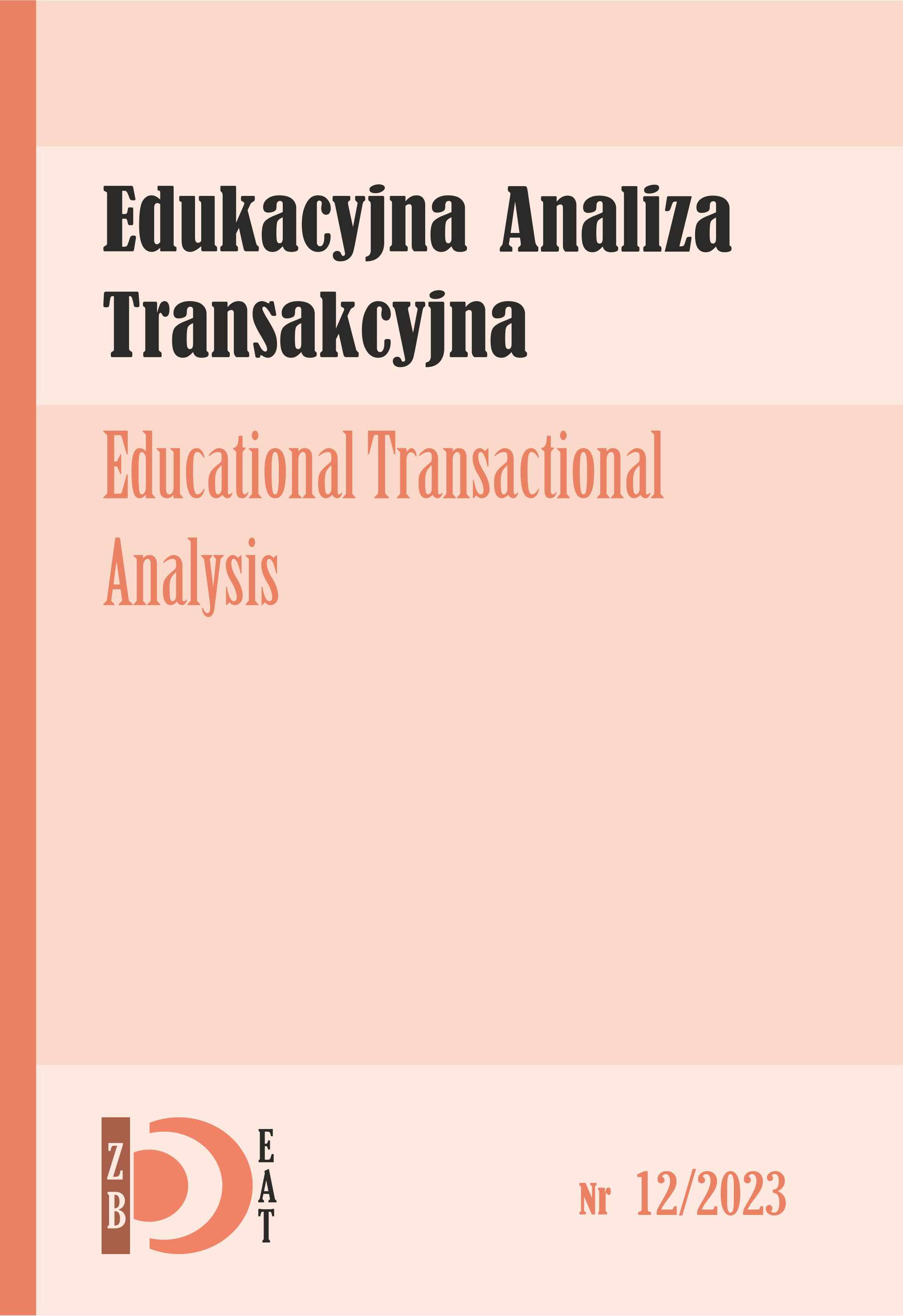The experience of online grooming in the perspective of “digital natives”
DOI:
https://doi.org/10.16926/eat.2023.12.10Keywords:
online grooming, media education, young adultsAbstract
Online grooming is the grooming of children using the Internet, aimed for their later sexual exploitation. The present study aimed to reveal the scale of the threat by analyzing the experience of online grooming according to young adults, the first generation of “digital natives" (those raised with widespread access to the Internet). A survey method i.e. a survey questionnaire was used. A total of 136 people aged 19-30 took part in the survey. The results indicate that awareness of online grooming is still low, although almost everyone encounters its manifestations. Children and teenagers did not identify them as a potential threat. In some cases, the effects of online grooming can have a huge impact on the perception of reality in adulthood. The respondents rarely sought help in the face of their experiences, most often from their parents and guardians, least often from their teachers. From a pedagogical perspective, this indicates deficiencies in the implementation of media education tasks by state institutions, schools and families. What is required is raising public awareness of the dangers awaiting the child online, especially in view of such rapidly developing technology and the shifting age limit at which a minor independently (without control) uses Internet resources.
Downloads
References
Andrzejewska, A. (2014). Dzieci i młodzież w sieci zagrożeń realnych i wirtu-alnych. Aspekty teoretyczne i empiryczne. Warszawa: Wydawnictwo En-gram Difin.
Bednarek, J., Andrzejewska, A. (2009). Cyberświat: możliwości i zagrożenia. Warszawa: Wydawnictwo Akademickie Żak.
Carr, J. (2005). Internet a wykorzystanie seksualne dzieci i pornografia dzie-cięca. Dziecko Krzywdzone. Teoria, badania, praktyka, 4(4), 11–27.
Dąbrowska, M. (2018). Grooming – wybrane aspekty prawnokarne i krymi-nologiczne. Warszawa: Rzecznik Praw Dziecka.
Kałka, I. (2007). Dzieci krzywdzone i wykorzystywane seksualnie. Poradnik dla nauczycieli, pedagogów i pracowników socjalnych. Sosnowiec: Wy-dawnictwo ProjektKom.
Maciarz, A. (2006). Trudne dzieciństwo i rodzicielstwo. Warszawa: Wydaw-nictwo Akademickie Żak.
McAlinden, A. (2006). Setting 'em up': personal, familial and institutional grooming in the sexual abuse of children. Social & Legal Studies, 15(3), 339–362; http://dx.doi.org/10.1177/0964663906066613.
Nowalska-Kapuścik, D. (2017). Technologia jako inspiracja dla interdyscy-plinarnych badań naukowych. Wydawnictwo e-bookowo.
Nowak, A., Krejtz, K. (2006). Internet z perspektywy nauk społecznych. In: D. Batorski, M. Marody, A. Nowak (red.), Społeczna przestrzeń Internetu (pp. 5–19). Warszawa: Wydawnictwo Szkoły Wyższej Psychologii Spo-łecznej “Academica”.
Podgajna-Kuśmierek, M. (2003). Pedofilia. Kraków: Wydawnictwo Uniwersy-tetu Jagiellońskiego.
Pospiszyl, K. (2014). Przestępstwa seksualne: geneza, postacie, resocjalizacja oraz zabezpieczenia przed powrotnością. Warszawa: Wydawnictwo Nau-kowe PWN.
Prensky, M. (2001), Digital Natives, Digital Immigrants Part 1, On the Hori-zon, 9 (5), 1–6; https://doi.org/10.1108/10748120110424816.
Pyżalski, J. (2012). Agresja elektroniczna i cyberbullying jako nowe ryzy-kowne zachowania młodzieży. Kraków: Oficyna Wydawnicza Impuls.
Sarzała, D. (2009). Problem agresji i przemocy w multimediach elektronicz-nych -–aspekty psychologiczne i etyczne. In: J. Bednarek, A. Andrzejew-ska (red.), Cyberświat: możliwości i zagrożenia (pp. 243–279). Warsza-wa: Wydawnictwo Akademickie Żak.
Salter, A. (2003). Pokonywanie traumy. Jak zrozumieć i leczyć dorosłe ofiary wykorzystywania seksualnego w dzieciństwie. Poznań: Media Rodzina.
Stein, A. (2018). Nowe wychowywanie seksualne. Warszawa: Wydawnictwo Mamania – Grupa Wydawnicza Relacja.
Winters, G. Jeglic, E. (2017). Stages of Sexual Grooming: Recognizing Poten-tially Predatory Behaviors of Child Molesters. Deviant Behavior, 38(6), 724–733; http://dx.doi.org/10.1080/01639625.2016.1197656.
Downloads
Published
How to Cite
Issue
Section
License
Copyright (c) 2023 Natalia Pendziałek

This work is licensed under a Creative Commons Attribution 4.0 International License.
I am aware that the Educational Transactional Analysis journal is published under a Creative Commons license - Attribution (https://creativecommons.org/licenses/by/4.0/legalcode).
By submitting the article, I agree to make it available under this license

